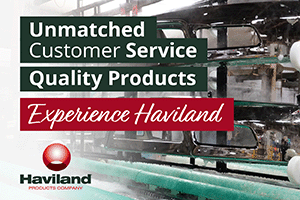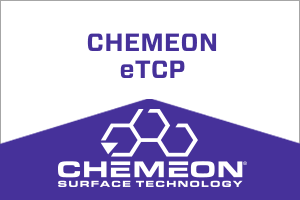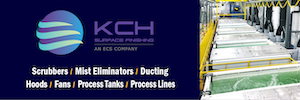Over the past several weeks, there have several instances where finishers and coaters have been accused of doing things that have been brought to the attention of law enforcement and regulatory agencies.
These are instances where — in the past — these types of things were not mentioned because they often brought shame and an unnecessary spotlight to the industry.
Granted, 99.98% of finishers and coaters follow all regulatory requirements and are excellent stewards of the public interest when it comes to environmental issues.
So naming the names of those who have been charged or accused of breaking laws and rules is essential to protect those who do, indeed, follow the rules and abide by the laws.
It's not something we take lightly. In fact, we have plenty of angst over naming a particular shop or its owners in news stories, but it's also a fairly easy decision when those same shops and owners have been publicly named on other mainstream media.
In this issue, we highlight two shops in Michigan that, unfortunately, have found themselves in the spotlight in a not-too-flattering way.
Tribar in Michigan had an unfortunate instance where it seems a rogue employee — according to the company — may have sabotaged the equipment to release liquid into the waste stream that contained hexavalent chromium, although about 5% by volume.
The media has picked up on this across the U.S. and maligned the company, even causing the owner's home to be vandalized by residents upset with the release, which came on the heels of news that Tribar also had a PFAS release traced to it.
Publicizing the episode not only protects the innocent but also gives other shops and companies a heads-up of what could happen, as much as a nightmare that it has been for Tribar.
Shops need to learn from mistakes, and if this indeed was a rogue employee doing the dirty deed, then we all need to educate ourselves on what could go wrong if someone tries to sabotage your equipment and make your company look bad.
In the case of the owners of ASP Plating in Grand Haven, Michigan, they pled guilty to criminal violations of the Clean Water Act in a fairly egregious way. According to public records, the owners held an industrial pretreatment permit issued and, between 2015 and 2021, violated the permit by dumping zinc in excess of the daily and monthly limitations, releasing zinc in batches without notice, and by bypassing the mandatory pretreatment system entirely.
Since the owners pled guilty, we can assume they knew what was happening. Episodes like that leave the industry with a mark on its reputation, but in no way does it reflect nearly all of the industry as a whole.
Naming the people who have been charged or pled guilty is never a pleasant thing to do, but it is a necessity to know that other Michigan shops weren't the culprits.
We hope we have fewer and fewer news stories like these because no one won when these cases are brought.





 Tim Pennington is Editor-in-Chief of Finishing and Coating, and has covered the industry since 2010. He has traveled extensively throughout North America visiting shops and production facilities, and meeting those who work in the industry. Tim began his career in the newspaper industry, then wound itself between the sports field with the PGA Tour and marketing and communications firms, and finally back into the publishing world in the finishing and coating sector. If you want to reach Tim, just go
Tim Pennington is Editor-in-Chief of Finishing and Coating, and has covered the industry since 2010. He has traveled extensively throughout North America visiting shops and production facilities, and meeting those who work in the industry. Tim began his career in the newspaper industry, then wound itself between the sports field with the PGA Tour and marketing and communications firms, and finally back into the publishing world in the finishing and coating sector. If you want to reach Tim, just go 






















